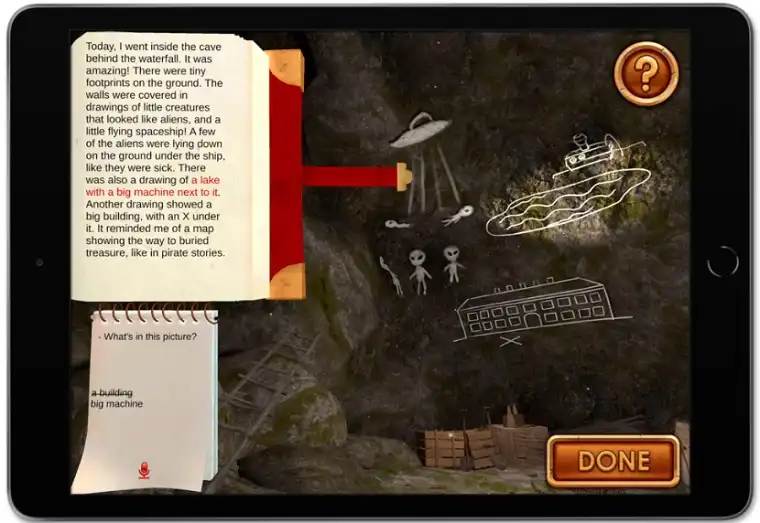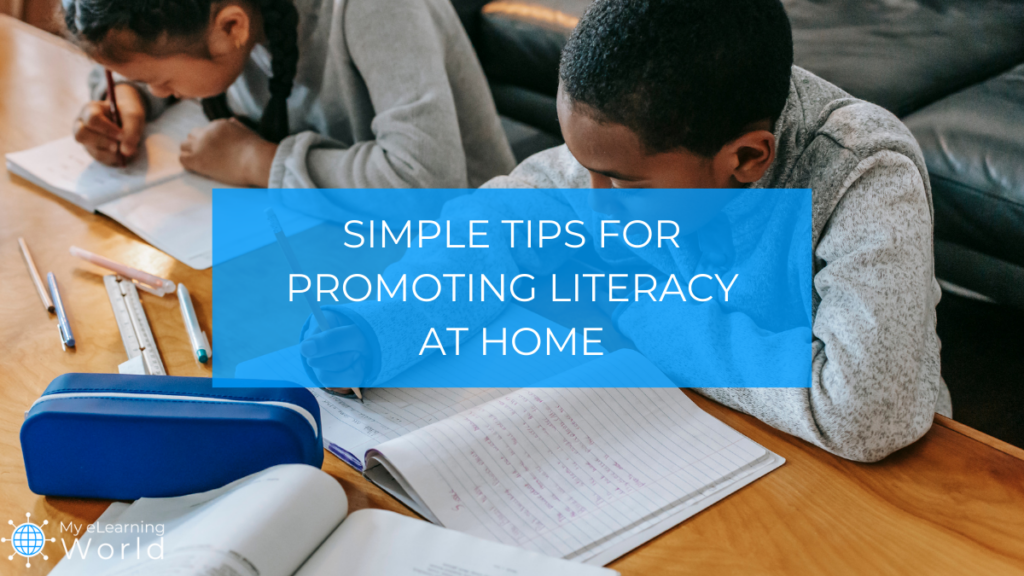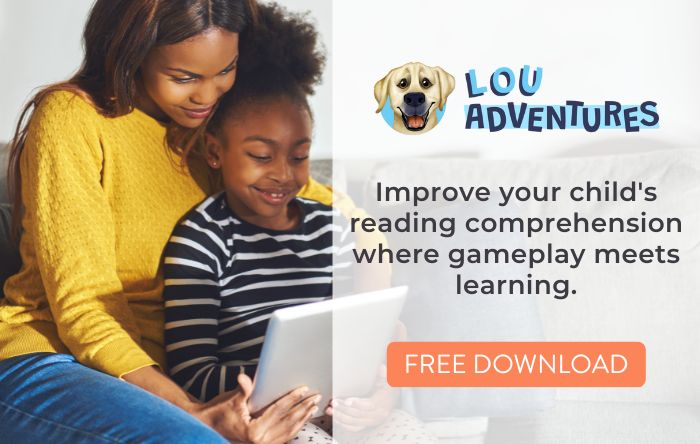They say home is where the heart is, but it’s also where learning begins! As children spend most of their time with their parents, the house becomes the perfect playground for nurturing a lifelong love for literacy.
In this guide, we’ll share some invaluable tips for parents to promote literacy at home, helping kids gain the valuable reading skills they need for academic success.
From creating an engaging environment to incorporating interactive activities, we empower parents to cultivate strong reading and learning skills in their children.
Together, let’s embark on this transformative journey and unleash the power of literacy at home.
Disclosure: Some of the links in this article are affiliate links, meaning at no additional cost for you, we might get a commission if you click the link and purchase.
Tips for Promoting Literacy at Home
1. Lead by Example
Actions speak louder than words in promoting literacy at home. According to an article by Michigan State University Extension, infants and toddlers are the world’s best “copycats.” They observe and imitate the behaviors and interests of those around them, including their parents. By demonstrating our love for reading and learning, we inspire our children to follow suit.
Make reading a part of your daily routine and share your excitement about books and knowledge. Create cozy reading moments where you and your child can explore the pages of their favorite stories. Choose age-appropriate books that cater to their interests and reading level, and engage them in discussions about the characters, plot, and lessons learned.
Encourage your child to develop their reading habits by providing reading materials. Explore different genres, from picture books and graphic novels to non-fiction and poetry, allowing them to discover what resonates with them. Visit your local library regularly and let your child choose books that captivate their interest.
Incorporate storytelling into your daily interactions with your child. Share personal anecdotes and folktales, or even create imaginative stories together. It enhances their listening skills but also stimulates their creativity and language development. Remember, their little eyes are watching, and your actions impact their behaviors and interests.
2. Create a Dedicated Corner for Learning at Home
Create a cozy and inclusive corner in your home as a dedicated learning space. Making this area inviting and well-equipped sets the right environment and changes the mood for effective learning. Fill it with various books, educational posters, puzzles, and writing materials that cater to your child’s interests and developmental stage.
The presence of diverse books in the learning corner fosters inclusivity and exposes your child to different cultures, perspectives, and experiences. Include books that reflect a range of characters, backgrounds, and abilities, promoting empathy and understanding.
Ensure that the learning corner is well-organized and visually appealing. Use colorful bins or shelves to store books and materials, making it easy for your child to access and return items independently. Consider adding comfortable seating options such as bean bags, pillows, or a small reading nook with soft cushions.
Incorporate educational posters that display letters, numbers, shapes, and other relevant information. These visuals serve as helpful references and reinforce essential concepts. Add puzzles and manipulatives for hands-on exploration, problem-solving, and cognitive development.
Also include writing materials such as paper, crayons, markers, and chalk. Encourage your child to engage in drawing, doodling, and writing activities that support their fine motor skills and self-expression.
A dedicated learning space sets the right tone for learning and helps establish a routine and sense of structure in their daily lives.
3. Tap Into Technology As A Tool For Promoting Literacy
 Lou Adventures: An Interactive Learning Story for Kids
Lou Adventures: An Interactive Learning Story for Kids
Lou Adventures is an interactive learning story for kids that helps them improve their reading skills through a fun, adventurous game.
In today’s digital age, technology offers exciting opportunities to enhance literacy skills in children. However, it’s critical to strike a balance and ensure that technology is used mindfully and purposefully.
Instead of allowing kids to spend hours on meaningless games and cartoons, which should be limited and monitored, we can harness the power of technology to promote learning engagingly and interactively.
One valuable resource that can be subtly incorporated into your child’s digital learning experience is Lou Adventures. This interactive learning story for kids provides a fun and adventurous game that helps them improve their reading skills.
Lou Adventures’ reading program is designed to captivate children’s attention while enhancing their language proficiency through immersive gameplay.
With Lou Adventures, children embark on exciting journeys through captivating narratives, encountering vocabulary-rich content and engaging challenges. As parents, we can guide our children’s use of technology by setting time limits and ensuring that their interactions with apps and games are educational and beneficial.
Integrating Lou Adventures into your child’s digital learning routine is an opportunity to engage with technology. The upcoming reading games from Lou Adventures, which focus on literacy skills such as word learning and synonym identification, offer additional avenues for expanding their vocabulary and language proficiency.
You can check out our Lou Adventures review for more details on the app or click here to try it for free.
4. Turn Playdates into Learning Dates
Playdates provide a wonderful opportunity for children to socialize, have fun, and learn together. You can infuse educational elements into playdates to create valuable learning experiences. One idea is to organize a group storytelling session where children take turns sharing their favorite stories or creating new ones. This activity enhances their language skills and boosts their confidence in public speaking.
Another approach is to plan collaborative projects that foster teamwork and creativity. Children can work together on creating a mural, building a model, or designing a board game. These projects encourage problem-solving, communication, and critical thinking skills.
Consider incorporating science experiments into playdates. Children can explore concepts like water absorption, chemical reactions, or magnetism through hands-on experiments. It promotes curiosity, observation skills, and a love for science.
Sensory play is another engaging activity for playdates. Set up sensory play stations where children can engage with textured materials like sand, water, or slime. Creating sensory bins with various objects also provides a great opportunity for them to explore different textures and stimulate their senses. Sensory play supports cognitive development, fine motor skills, and creativity.
Take playdates outdoors and explore nature together. Go for nature walks, visit local parks, or have a scavenger hunt. Encourage children to observe and ask questions about the environment, plants, and animals they encounter. Outdoor play promotes physical development, curiosity, and appreciation for the natural world. Remember, the key is to create a balance between learning and fun during playdates.
5. Observe What Interests Your Child the Most
Understanding your child’s unique interests is crucial for promoting their love for literacy. Pay close attention to the themes or genres that captivate them, as this will help you tailor their reading materials and literacy activities accordingly. By observing what interests your child the most, you can create a learning environment that resonates with their tastes and preferences.
As you explore your child’s interests, incorporating resources like Lou Adventures can enhance their reading journey. Lou Adventures offers a range of captivating storylines and games that can adapt to your child’s tastes.
The upcoming games from Lou Adventures will focus on literacy skills, introducing interactive challenges that help children learn new words, practice using them in sentences, and identify synonyms. These games add a new dimension to their learning experience, making literacy development educational and entertaining.
However, parents must recognize and respect their child’s genuine interests, rather than forcing them into fields that may not align with their passions.
Research has shown that when children are compelled to pursue paths they are not genuinely interested in, their thinking abilities can be hindered, and their motivation to study declines.
Therefore, it is essential to cultivate an understanding of our children’s true passions and aspirations.
6. Don’t Go Overboard on Learning
While promoting literacy and providing educational opportunities for your child is crucial, it’s equally important to maintain a healthy balance in their overall development. Encourage unstructured playtime and allow them to explore their interests outside academics.
You must avoid overwhelming them with excessive learning in a short period. Instead, consider breaking down learning sessions into smaller, manageable chunks.
By spacing out the learning activities and allowing for breaks, your child will have time to process and absorb the information they have learned. This approach prevents burnout and enhances their retention and understanding of the material.
A Final Word on Promoting Literacy at Home
It’s about finding a balance and making the process enjoyable, fostering a strong parent-child bond through shared stories, adventures, and the exploration of knowledge.
Empowering children to become confident readers and learners is a collective effort that prepares them to conquer the world of words. Promoting literacy is not about pressure or rigid structures but about fostering a genuine love for reading and learning.
Have any questions about promoting literacy at home? Let us know by commenting below.


